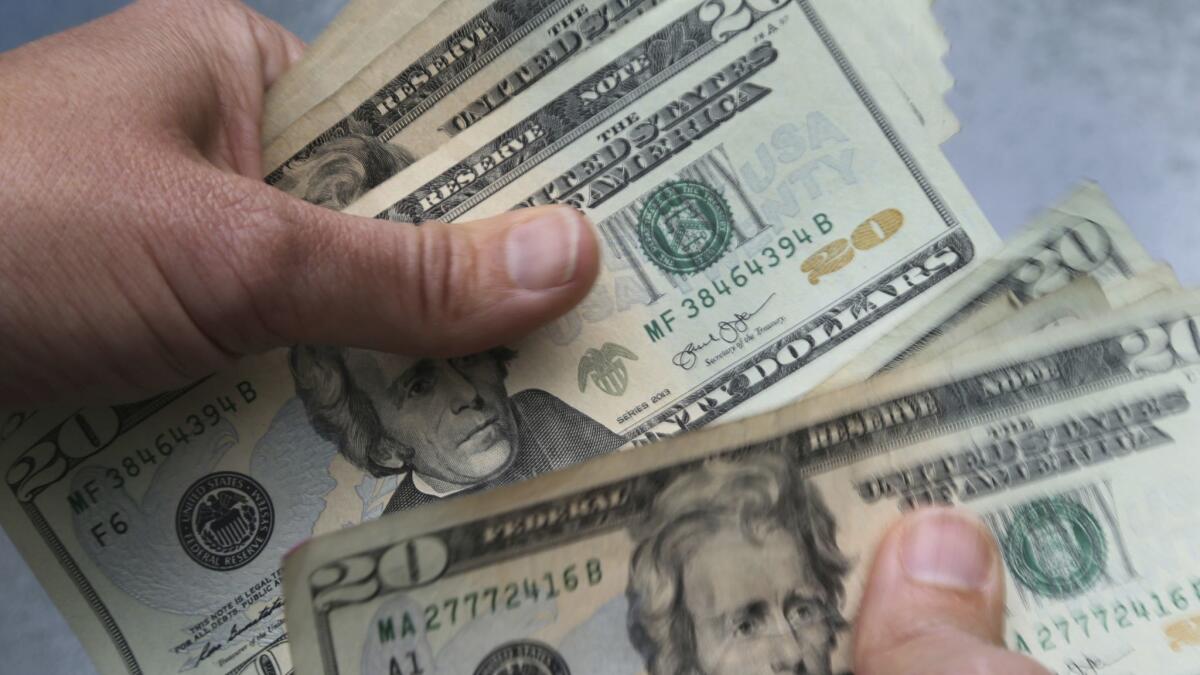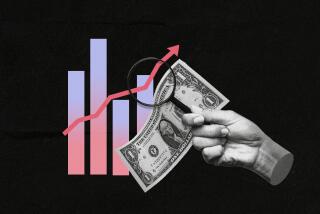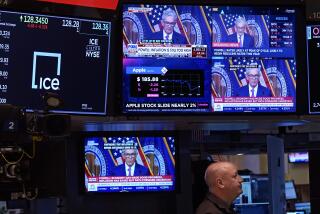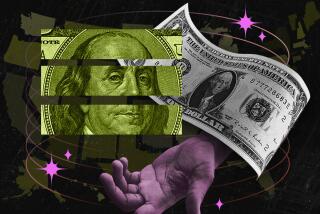When companies raise prices, they make the rich richer at everyone else’s expense, study finds

- Share via
In 2016, U.S. companies’ pursuit of bigger profits through higher prices transferred three percentage points of national income from the pockets of low-income and middle-class families to the wealthy, according to new research on market concentration and inequality.
The study, forthcoming in the Oxford Review of Economic Policy, examines how growing corporate power, particularly in industries dominated by shrinking numbers of huge companies, effectively “transfer[s] resources from low-income families to high-income families.”
In the latter part of the 20th century, the share of U.S. households owning some form of stock rose dramatically, from 32% in 1989 to 52% in 2001. That shift was driven largely by a decline in defined-benefit pension plans and the rise of the 401(k) retirement account. As a result, the traditional line between shareholders and consumers has become blurrier than ever. That has led a number of economists to declare that what’s good for shareholders is also, by definition, good for the middle class.
“In a world where individuals or households can be both consumers and shareholders, the impact of market power on inequality depends in part on the relative distribution of consumption and corporate equity ownership across individuals or households,” according to the team of researchers behind the new study, which includes a member of the Australian parliament with a PhD in economics.
At the risk of oversimplifying, take the example of a family with a diabetic member who must pay for insulin on a regular basis. The family also happens to own stock in the three powerful pharmaceutical companies that manufacture insulin in the United States. Those companies have drastically increased the prices of insulin in recent years, in part because of their dominance of the domestic insulin market. Those price increases have resulted in higher profits for company executives and their shareholders.
Whether those price increases ultimately harm or benefit the family depends on two factors: how much they spend on insulin and how big a stake in the insulin companies they own through the stock market.
To answer this, the researchers use data from the federal Survey of Consumer Finances and the Consumer Expenditure Survey to calculate the distribution of corporate equity (e.g., stocks and business equity) and of total consumer expenditures. They find that corporate equity is much more unequally distributed than expenditures.
The top 20% of U.S. households own nearly 90% of the country’s total equity, according to their calculations. But those households account for a hair under 40% of total consumer spending. Looking at things from the perspective of the poor and middle class, the bottom 80% of the country owns just 10% of the equity but spends 60% of the money.
On net, that means it’s nearly impossible for the typical U.S. family to make up for higher prices via the performance of their stock portfolio. When prices rise, low- and middle-class families pay. Wealthy families profit.
The researchers take this analysis a step further by calculating exactly how much household income is transferred from the poor and middle class to the wealthy solely because of powerful companies’ profit-maximizing price hikes. They find that monopolistic pricing takes a bite out of every income group’s share of national income, with the notable exception of the top 20%, whose incomes rise. In effect, companies are using their market power to extract wealth from poor and middle-class households and deposit it in the pockets of the wealthy, to the tune of about 3% of national household income in 2016.
The implication of these findings is that antitrust enforcement has the potential to be a tool in the fight against rising inequality by reducing the ability of large companies to set high prices that primarily benefit the wealthy. Conversely, the findings suggest that a recent lapse in that enforcement is contributing to the growing gap between the rich and poor.
Ingraham writes for the Washington Post.
More to Read
Inside the business of entertainment
The Wide Shot brings you news, analysis and insights on everything from streaming wars to production — and what it all means for the future.
You may occasionally receive promotional content from the Los Angeles Times.










